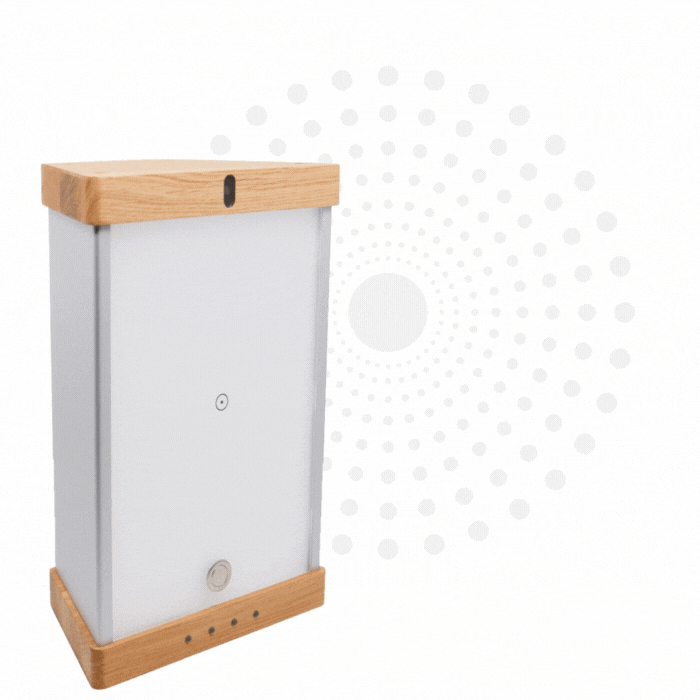Frontotemporal dementia (FTD) is a progressive neurodegenerative disease that primarily affects the frontal and temporal lobes of the brain. Understanding the stages of FTD progression can help caregivers manage expectations and provide appropriate support for individuals living with this condition. This article delves into the key stages of FTD, outlining the potential symptoms, challenges, and impact on quality of life.

Christopher Ravn
Key Takeaways
1. Frontotemporal dementia (FTD) is a progressive disease with distinct stages.
2. Early symptoms may include changes in behavior, language, and personality.
3. As the disease progresses, patients may experience cognitive decline, physical impairments, and emotional challenges.
Table of Contents
1. Frontotemporal Dementia Stages (FTD)
2. How Do Behavioral Changes Manifest In FTD?
3. What Are The Language Impairments Associated With Frontotemporal Dementia?
4. What Is The Memory Loss Stage Of Frontotemporal Dementia?
5. How Quickly Does Frontotemporal Dementia Progress?
6. What Are The Final Stages Of Frontotemporal Dementia Like?
7. What Are The Most Common Symptoms And Behaviors In FTD?
8. What Is The Timeline Of Someone With Frontotemporal Dementia?
9. What Is The Youngest Age For Frontal Lobe Dementia?
10. Frequently Asked Questions About 'frontotemporal Dementia Stages'
Frontotemporal Dementia Stages (FTD)
Frontotemporal dementia (FTD) is a neurodegenerative disorder that affects the frontal and temporal lobes, It goes through a series of stages marked by distinct symptoms and changes.
- Mild stage, where it may come across as depression or anxiety. You may notice changes in behavior and language such as social withdrawal, difficulty finding words, issues with apathy, and finding the right words.
- Difficulty with language, expression, and understanding
- Loss of speech and language skills
- Behavioral changes
- Tremors and rigidity
- Memory loss and issues with problem-solving
- Total loss of language and communication skills
- Motor impairment such as being unable to walk, balance, or coordinate
- Dependence on caregivers
- Other infections become significant as the immune system deteriorates.
- Provided the necessary care.
- Recognize the progression of FTD to assist families and caregivers in setting the necessary expectations.
- Ability to cope with emotional and behavioral changes.
What Are The Early Symptoms In The First Stage Of Frontal Lobe Dementia?
- Difficulty in planning and organizing
- Issues with problem-solving and decision-making
- Unable to multitask
- Can’t remember recent events or conversations
- Reacting slowly or slowly to process
- Decreased empathy
- Lack of interest
- Inappropriate behaviors
- Loss of social awareness
- Mood swings
- Inflexible
- Increased anxiety and agitation
- Displaying unusual behaviors
- Similarities to normal aging or other issues such as anxiety
- No sense of awareness among family members
- Lack of cognitive tests
- Limited understanding of FTD
- Misdiagnosis of conditions with other issues such as depression, ADHD, personality disorders, etc. There are some instances where it may be seen as Lewy body dementia and thus it is important to understand frontotemporal dementia vs lewy body dementia.
How Do Behavioral Changes Manifest In FTD?
- Lack of inhibition and mood swings such as throwing tantrums, public urination, and other diminished attitudes.
- Obsessive-compulsive behavior such as hoarding, cleaning, repeating movements, and collecting items.
- Lack of motivation and thus appearing selfish
- Changes are also seen in language issues such as finding the right words, unable to initiate or maintain conversations, thus leading to shorter conversations.
- The caregiver may experience frustration, embarrassment, and emotional distress.
- Unable to dress, bathe, or groom, which becomes a challenging task.
- Struggle to maintain relationships due to changes in behavior
- Loss of autonomy as the patient may require constant assistance.

What Are The Language Impairments Associated With Frontotemporal Dementia?
- Speaking slowly, hesitant, and unable to articulate words
- Trouble mentioning names, people, or objects
- Struggle to understand spoken or written language
- Issues with grammar, sentence structure, and syntax
- Inability to remember certain words or names.
- Forming new words or sentence structure
- Unable to differentiate words
- Reading and writing issues
Three subtypes are linked with FTD. They are primary progressive aphasia (PPA), non-fluent variant (nfvPPA), and semantic variant primary progressive aphasia (svPPA). Each of these variants showcases distinct language impairments.
nfvPPA is where the patient has issues forming words, speaking fluently, issues with grammar and sentence structure, and may be able to understand simple words and sentences. However, svPPA is where patients struggle with naming objects or understanding the meaning of words, have trouble identifying objects and their uses, words, meaning, and concepts, and are unable to generate words or sentences.
How Does FTD Impact Quality Of Life Over Time?
FTD impacts the quality of life over time and causes patients to experience challenges in their daily routines. This leads them to depend on their caregivers and this places psychosocial effects on both family and patient.
- Dressing, bathing, and grooming
- Struggle to find the right words to communicate
- Issues in swallowing that lead to malnutrition
- Unable to walk or perform other physical activities.
Patients may also become more dependent on caregivers, which places a physical and emotional burden on them. They may experience feelings of stress, fatigue, and isolation, and thus, they need to seek support and the right resources.
FTD also impacts emotionally and psychologically on both the caregiver and patient. Hence, feelings of frustration and anxiety heighten as their dependency increases. This also applies to the caregivers, as they experience a range of emotions, including anger, guilt, and grief. In addition, FTD plays a huge role in the economic and social aspects, and patients may struggle to maintain any form of social relationships. As for finances, it affects the caregiver on a substantial level.
What Personality Changes Occur In Frontal Lobe Dementia?
- Inappropriate words or behavior
- Risky activities
- Lack of self-control
- Coastic language or offensive comments
- Lack of consideration for feelings
- Public indecency
- Lack of concern or empathy
- Apathy
- Neglect on personal hygiene
- Socially inappropriate behavior
- Lack of emotional response
- Unable to plan
- Increased conflict and frustration
- Issues with communication
- Increased frustration
- Misunderstanding and miscommunications.
We Believe Prioritizing Brain Health Enhances Your Quality Of Life
Get to know our team, our mission and how our EVY LIGHT® can provide you and your loved ones with a fuller life, letting you breathe a little easier.
What Is The Memory Loss Stage Of Frontotemporal Dementia?
Memory loss becomes more prominent, which is not the same as Alzheimer’s. This is because Alzheimer’s exhibits these in the early stages and FTD manifests this later on.
- Memory issues develop gradually. This normally takes place over several years.
- Memory impairment may affect different parts of life, such as recognizing faces, remembering events, learning new information, and preserving remote memories.
- Memory loss in the early stages
- Affects the hippocampus and surrounding area.
- Using memory aids such as notes and reminders to remember tasks.
- Have a daily and consistent routine.
- Provide emotional support and validation.
- Seek help from a neurologist or geriatrician for personalized guidance and support.
What Are The Signs Of Severe Cognitive Decline In FTD Dementia?
- Aggression or restlessness
- Wandering away from familiar places
- Engaging in repetitive behavior
- Incontinence.
- Issues with swallowing, walking, or controlling movements
- Weight loss issues due to eating or swallowing issues
- Insomnia
- Seizures
- Administering medication to alleviate pain
- Counseling for patients and caregivers
- Hospice care for those with terminal illness. You will also need to understand when to call hospice for dementia.
How Quickly Does Frontotemporal Dementia Progress?
- The early stage takes a long time to develop but it may last between 2 – 10 years depending on the subtype.
- The middle stage shows a decline in cognition and may last 2–5 years.
- Late stage shows severity in impairment such as loss in motor skills and dependence on their caregivers. This stage lasts 1–5 years.
- Variant FTD (bfvFTD) progresses faster than other subtypes
- Genetic mutations such as MAPT, GRN, or C9orf72 show faster progression.
- Affects younger individuals
- Those in the higher education and reserved cognition brackets may experience a slower decline.
- Some cases may exhibit accelerated decline, with significant changes occurring within 1-2 years.
- Others may experience a slower decline, with symptoms developing over several years. This is more common in PPA or motor variant FTD.

Enhance your brain performance through the power of light.
Comfortable and easy to use 40Hz light therapy to support and improve your brain function.
View Our LightWhat Are The Final Stages Of Frontotemporal Dementia Like?
- Significant memory loss, language issues, and inability to perform daily activities
- Progressive stiffness, rigidity, and motor loss
- Unable to swallow and thus constantly choking.
- Frequent and severe pain due to unresponsiveness to medication
- Increased emotional distress, such as depression and anxiety.
- Loss of independence
How Long Does The Final Stage Of FTD Last
The final stage of FTD, which is also known as stage 7, may last several months to a few years. This is because the duration varies from person to person depending on their medical condition, disease progression, and overall health.
During this stage, patients with FTD show severe cognitive impairment and require assistance for their daily activities. It is also imperative to know how long do the 7 stages of Alzheimer’s last.
What Are The Most Common Symptoms And Behaviors In FTD?
- Impulsivity, apathy, disinhibition.
- Significant behavioral changes such as being withdrawn, irritable, and aggressive.
- Struggle to find the right words.
- Loss of empathy.
- A predictable routine
- Patients to express their feelings and gain emotional support
- Set boundaries to manage challenging behaviors.
- Seek advice or help from counselors or therapists.
- Join a support group to connect with other caregivers.
What Is The Timeline Of Someone With Frontotemporal Dementia?
The timeline of someone with FTD may vary due to factors such as the type of FTD and their overall health. In general, once a patient has been diagnosed, they normally live between 5 and 10 years. However, you need to understand that this too may vary significantly.
- Future planning for families and patients in terms of care arrangements and financial matters.
- Early intervention may enhance the quality of life.
- Other types of clinical trials and experimental treatments.
What Is The Youngest Age For Frontal Lobe Dementia?
FTD impacts those under the age of 65 and most of the cases are patients between the ages of 45 and 64. To date, the youngest reported FTD case is 21 years old. For those with young-onset FTD, the symptoms are changes in behavior, personality, and language that are somewhat subtle.
However, young-onset FTD is often misdiagnosed due to lack of awareness, overlapping with other symptoms or substance abuse, inadequate neuropsychological testing, and limited access to specialized care.
Thus, it is important for younger individuals and families affected by FTD to gain access to specialized care, support groups, counseling, and respite care to obtain the necessary help, support, and education on the progression of the disease and manage expectations.
Learn What Others Have Experienced with EVY Light
See how others have achieved a sharper mind by activating their gamma brainwaves in combination with maintaining a healthy lifestyle.
Frequently Asked Questions About 'frontotemporal Dementia Stages'
What Are The Stages Of Frontotemporal Dementia?
- Early stages
- Middle stages
- Late stages
How Quickly Does Frontotemporal Dementia Progress?
- The early stage takes a long time to develop but it may last between 2 – 10 years depending on the subtype.
- The middle stage shows a decline in cognition and may last 2–5 years.
- Late stage shows severity in impairment such as loss of motor skills and dependence on their caregivers. This stage lasts 1–5 years.






















































